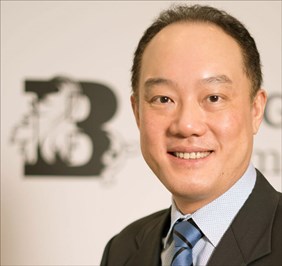
We were delighted to catch up with Harryono Judodihardjo, esteemed Dermatologist and Director of Belgravia Dermatology.

Can you tell us a little bit about what led you into the field of dermatology and what have been the highlights so far?
When I was a child, I used to have bad asthma so my parents took me to see a paediatrician regularly. This made me want to be a paediatrician when I grew up. However, after graduating from medical school and having rotated through most specialties I fell in love with dermatology. My senior colleagues were all so nice, helpful and chilled. People may think that dermatology is boring as we only see rashes all day. However, not many people know that there are literally thousands of different diagnoses in dermatology, far more than any other specialty. This is because the skin is such a complex system. I love learning, so I knew that when I joined dermatology, I would have a lifelong learning experience that would never bore me.
What has been the best piece of advice that you have received in your career and what advice would you offer to those following in your footsteps?
My seniors used to tell me, “If you are not sure, just ask!” Many diseases can manifest themselves in the skin but there are only so many ways the skin can show the diseases. Therefore, many skin diseases look similar. Most dermatology departments in the UK run regular ‘difficult case’ clinical meetings. This is because no one can have the memory capacity or experience to know every different skin diagnosis. Every dermatologist will have encountered cases that they do not recognise and asking for a second opinion from colleagues is not something that is alien to us.
If a person only knows 10 different dermatology diagnoses and do not realise that there are thousands more possible diagnoses, then everything will look like one of the 10 diagnoses they know. However, the more one is educated, the more cautious one will be at hastily making a diagnosis. Therefore, my advice for anyone wanting to be a dermatologist is, “if you are not sure, just ask!”
You are known for being very dedicated to training; do you see this as an important part of your work, and did you continue this virtually during the COVID-19 pandemic?
As I am approaching the end of my working life, I feel more urgency that I need to pass on what I have learned. This way humans can continue to progress by building on our accumulated knowledge. Aesthetic medicine and dermatology have progressed tremendously since I started my career. I have been very fortunate that my private clinics have always been busy, allowing me to see thousands of patients annually. I learned so much from doing decades of clinical and research work. It is my hope that the newer generations of dermatologists can be saved from repeating my past mistakes with good training.
I have continued to train people virtually during the pandemic. I have also been more active in online chat groups to give my opinions when I think it is appropriate. However, I think clinical training is much better face to face where one can see live demonstrations. I hope soon we can all get back to attending face to face conferences again.
You are one of the Scientific Directors for FACE 2022 which will be taking place in London in June. Can you tell us about the themes and potential highlights of the event?
I have been the Dermatology Director for FACE for three years. For FACE 2022, as we have not been to many meetings, I decided to develop a session on ‘what is new?’ so that we can all be brought up to date quickly. We are grateful that Dr Michael Gold, who needs no introduction, has agreed to chair that session and will also be giving several lectures at FACE 2022.
As the UK is becoming more international, I feel that we need to learn more about how to best treat skin problems in different races. I have thus planned for a session on how to treat non-white skin. We will have Dr Marissa Taylor and Dr Aaron Hsieh who are experts on black skin and Asian skin respectively to speak and chair the sessions. One that must not be missed.
And finally, if you have any spare time, how do you like to relax?
I read so much information for my work that when I relax, I prefer not to read. Instead, I enjoy going out to eat, watching movies and even doing some cooking. For the past 11 years, I have also been training in martial arts. This is one sport that needs full concentration or unfortunate accidents can happen. It really forces me to focus away from work. Now that I am semi-retired, I have also been trying to play golf properly. It seems to me that both golf and martial arts are also sports that require lifelong learning.
Many thanks for your time!
Comments are welcome
If you would like to comment on this article please contact:
Chris@pinpoint-scotland.com




